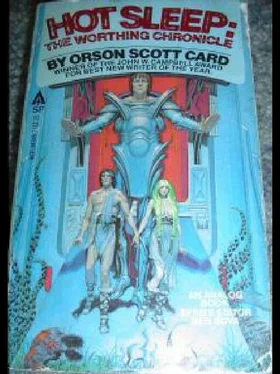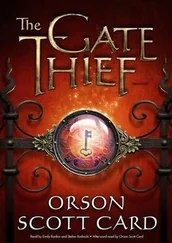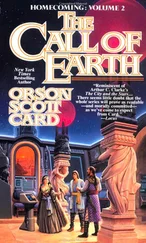"More likely two hundred, with luck," Jason said. "That's all I could hope for. The barrier itself won't last more than another fifty or sixty years. Your work's done there, Arran. Far better than I could do it."
"Why," she asked, "didn't you want to stay with me there?"
"Oh, no, Arran, I did want to stay with you. But I can't always do what I want, you know. You see, there are things in my mind that the boys might have understood, if they'd had enough time. Things that would have destroyed everything."
"You mean they can see into you, too?"
"You can stay with me now, Arran, I want you to."
And she threw her arms around him and wept. "I'm old and ugly!" she cried. "And you're still young. You'll always be young! I've lost my life with you!" And he let her weep, saying softly, "We all lose parts of our life, Arran. It can't be helped." But for a fleeting moment he felt a bitter regret for all the life that he, too, had lost; he grieved for friends who had grown old and died while he slept in the coffin; friends whose minds had been stripped by somec, whose life and love had been lost; for the children that he hadn't really been able to enjoy, for the life he had never been able to taste. "Being God," he said, "is the worst damn job in the universe."
Then he led Arran to a coffin in the now–empty B tube, and put her to sleep. He sealed the tube carefully, inspecting everything to make sure that the components had lasted the time well. Then he went through the rest of the ship, preparing it as if for deep space. The gap in the side he could do nothing about, but the interior locks in the ship were as able to withstand pressure as the exterior surface.
When he was satisfied with the condition of the starship, he sat in the control room and gently lifted the monstrous structure into the sky. He hovered it, so that the rotation of the planet moved the surface under him. Soon the land retreated to the east, and he was over the sea. He flew south, then, to a place far from any land, and gently settled the starship toward the surface of the ocean. The ship barely noticed contact with the water; it sank easily beneath the waves. And the structure was hardy enough to bear the pressure at the bottom; Jason knew that the ship had been built for far worse conditions than these; that perhaps thousands of years from now the metal would still be uncorroded, the ship's computers still capable of being revived, the ship's engines still able to bring her to the surface.
He wrote a message and laid it on the control board, spoke the same message into the ship's log, gave it to the computer so that any contact with the computer would print it out on the screen. Then he went to the coffin, lay down, put the sleep helmet on his head, and waited for his brain to be recorded. The job was done.
And then for no reason he could think of, Jason began to weep, softly, in his coffin. He was still weeping as the needle stabbed him and the somec scoured through his veins, and the agony of another thousand years of sleep began.
The ship lay waiting on the bottom. Sea creatures crawled along its surface, or made their homes in A tube, which lay open to the water. Every fifty years or so the ship would come to life, lights going on and off from one end of the ship to the other. The engines would fire, killing millions of infinitesimal plants and animals. Then the ship would go back to sleep again.
Each time it happened, a message flashed on the computer screen for a full minute:
"I am Jason Worthing. Think carefully before you waken me. If my work has failed, I don't want to know it. And if it has succeeded, but wasn't good for the people after all, I would rather sleep on. My dream of the future is too good for me to be eager to wreck it with reality."
The bottomfish, with their self–made light to protect them from the darkness of the deep, scuttled in and out of the torn place in the starship's hull. To them it was just another rock that could shelter them, for a short time, from the death always waiting just around the corner in the night.







